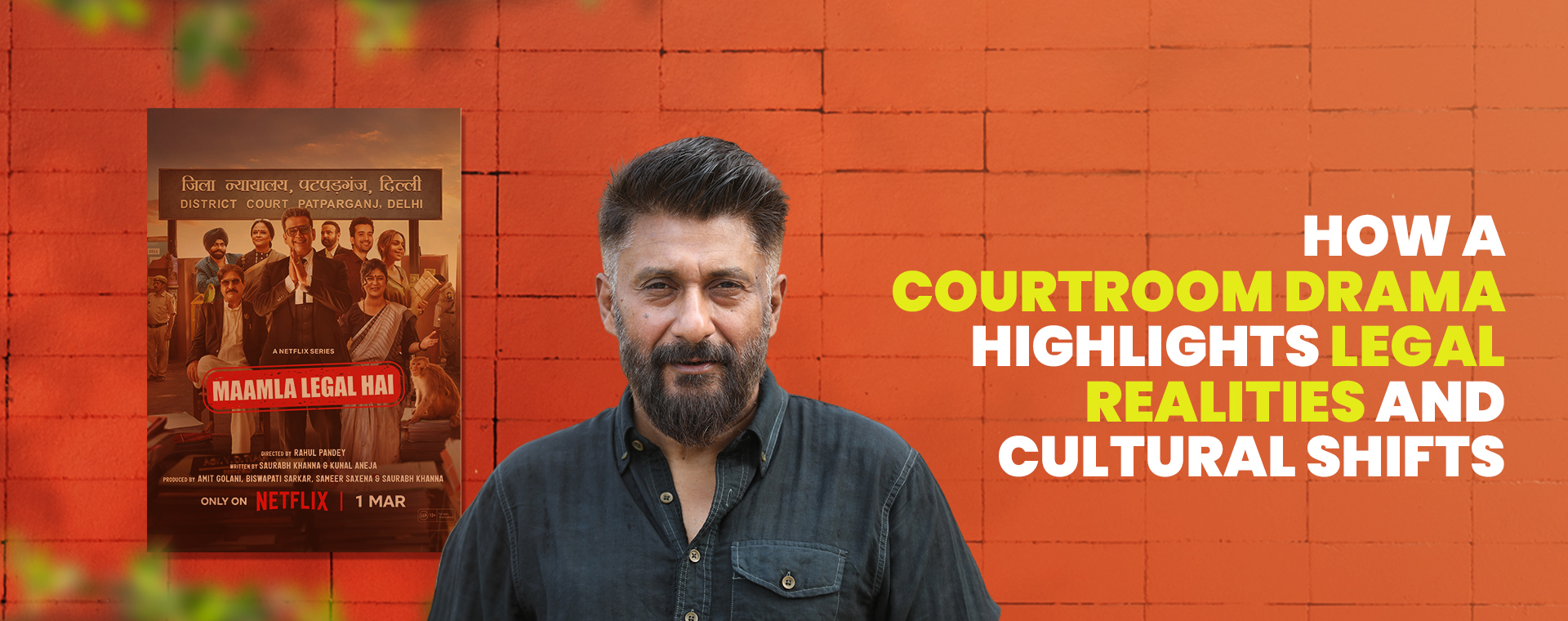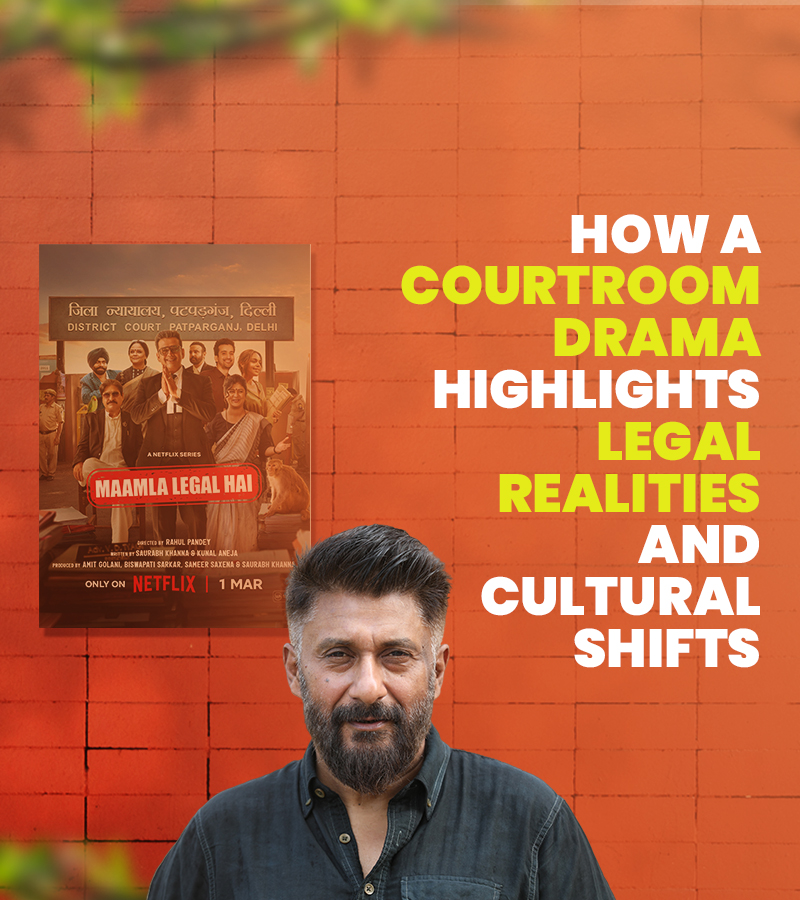

Cinema and Society: How ‘Maamla Legal Hai’ Reflects Legal Realities and Cultural Shifts
Maamla Legal Hai is based on humour, law and a mirror on modern India.
Netflix’s Maamla Legal Hai steps away from the typical legal drama formula. Set in the bustling Patparganj District Court of Delhi, the series delves into the complexities of the Indian legal system with a sharp dose of humour and a keen eye for social commentary. This blog explores how Maamla Legal Hai promises to be more than entertainment; it has the potential to be a mirror reflecting contemporary legal realities and the cultural shifts shaping modern India.
Beyond the Gavel: A Look Inside the Legal System
Legal dramas often confine themselves to the courtroom. Maamla Legal Hai breaks free. Each episode, likely focusing on a new case, will shed light on the challenges faced by ordinary citizens navigating the legal system. The series is poised to tackle issues like the backlog of cases, the labyrinthine legal procedures, and the struggle for access to justice, particularly for underprivileged communities. This portrayal can spark crucial conversations about the need for legal reforms and streamlining processes.
A Cast of Characters: Legal Eagles and Societal Issues
The series revolves around the charismatic VD Tyagi (played by Ravi Kishan), a lawyer with a distinct moral compass and a hunger for professional advancement. Tyagi is surrounded by a colourful cast, from colleagues to formidable rivals like Phorey (Yashpal Sharma). This ensemble, coupled with the episodic format, allows the series to explore a diverse range of legal issues. Through these cases, Maamla Legal Hai can delve into broader societal issues. We might see gender bias exposed within the legal system, the changing dynamics of family structures, or the impact of social media on legal disputes.
Humour as a Tool for Dialogue
Maamla Legal Hai uses humour and satire to expose the complexities of the legal system. This lighthearted approach makes the series more accessible and engaging for viewers. Imagine a courtroom scene where Tyagi’s sharp wit exposes the absurdity of bureaucratic hurdles, or an episode where a case involving online harassment sparks a conversation about evolving social norms. This use of humour can be a powerful tool for sparking critical discussions about legal realities and their impact on society.
Reflecting Modern India
The series’ true potential lies in its ability to reflect contemporary India. By showcasing the social repercussions of legal battles, Maamla Legal Hai can become a platform for reflection on the nation’s cultural shifts. An episode exploring a property dispute might highlight the changing landscape of family dynamics, while another focusing on a case involving environmental protection could spark discussions about India’s evolving relationship with its environment.
Aligning with Agnihotri’s Vision
Filmmaker Vivek Ranjan Agnihotri is known for tackling complex social issues through his films. While not directly involved in Maamla Legal Hai, the series aligns with his vision of using cinema to spark conversations. The show’s focus on legal realities and cultural shifts echoes Agnihotri’s own desire to challenge societal norms and advocate for change. Maamla Legal Hai has the potential to fulfil this purpose, sparking discussions and inspiring reflection on the legal system and the evolving social fabric of India.
A Catalyst for Change
The episodic nature allows for a nuanced exploration of legal realities. Each case, with its unique set of challenges and characters, has the potential to leave viewers pondering questions about the legal system, societal biases, and the need for reform. This potential to spark dialogue and raise awareness makes Maamla Legal Hai more than entertainment; it can be a catalyst for social change.
A Window into a Nation’s Legal Landscape
Maamla Legal Hai promises to be a captivating series that transcends entertainment and educates. By using humour, relatable characters, and a focus on both legal realities and cultural shifts, the series offers a window into the complexities of the Indian legal system and the evolving landscape of modern India. As viewers delve into the lives of those navigating the halls of Patparganj District Court, they might find themselves not only entertained but also engaged in a critical reflection on the nation’s legal and social fabric.






